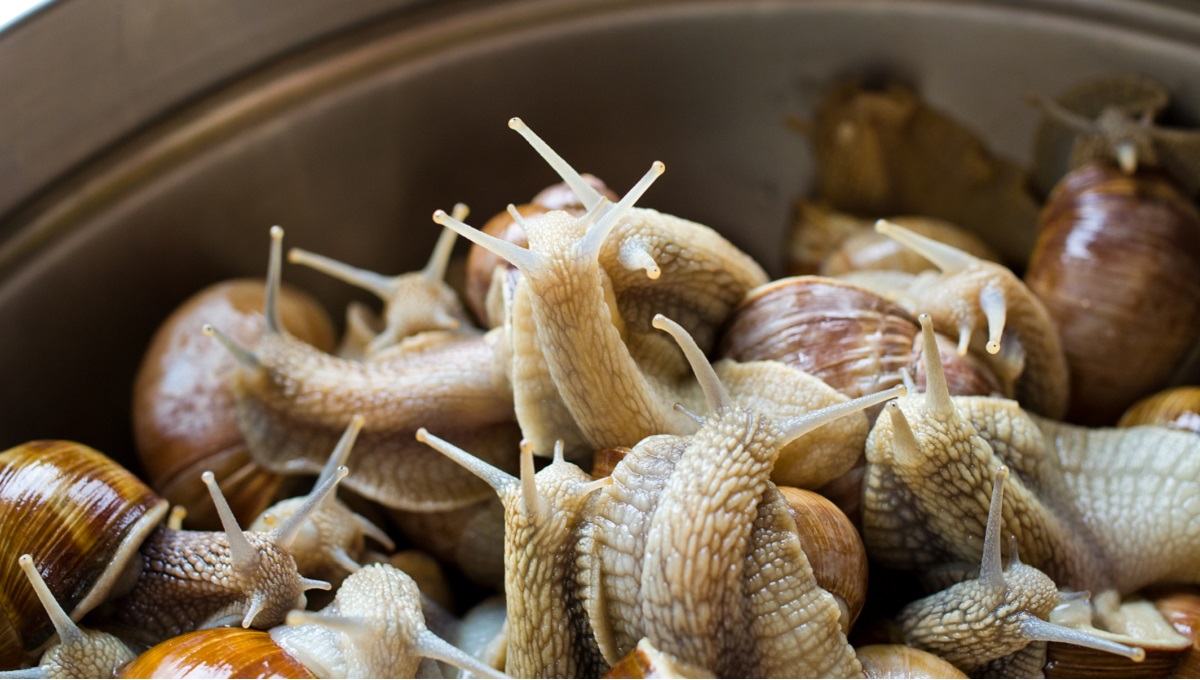
Scientists have suggested that outbreaks from edible snail consumption may be going undetected in Cameroon.
Researchers detected Campylobacter, Yersinia, Listeria, Salmonella, and Shiga toxin-producing E. coli in snails in Cameroon. African land snails are a source of food for many people in sub-Saharan Africa because of their protein.
In Cameroon, no data on pathogens in snail meat are available, and their role in causing enteric diseases in the local population is unknown, but live snails are sold in most local markets in the country.
Commercial snail farming is uncommon and people may spend up to 20 hours a week in search of edible snails in environments that include marshes, decaying vegetation, domestic waste, roadsides and bushes. These practices of collecting, handling, and consuming snails could expose handlers and consumers to pathogens.
The study, published in Emerging Infectious Diseases, assessed the prevalence of potential foodborne pathogens in African land snails consumed in Buea, Cameroon.
Outbreaks likely happening but not being recorded
Researchers collected live snails from peoples’ homes, on arable land, and in local markets from vendors during June to October 2019.
They detected at least one pathogen in every sample examined and most contained multiple pathogens.
The team said results show the public health risks in the handling and consumption of raw or undercooked edible snails collected from natural habitats in Cameroon.
Higher rates of Campylobacter and Listeria may reflect the common practice of free-range poultry farming in Buea and the direct contact of snails with the soil and decaying vegetation.
Findings suggest that foodborne outbreaks from edible snail consumption may be occurring, but are unidentified, in Cameroon, and probably other sub-Saharan Africa countries.
Another study, published by the same authors in the International Journal of Qualitative Methods, looked at the methodological challenges in studying local practices that could lead to food related illnesses among snail meat vendors and consumers in Buea. It aimed to improve health outcomes of people in Cameroon.
To complement preliminary field observations and get more in-depth understanding of the existing situation, experts used experiences, participant observation, in-depth interviews, and a focus group between June 2019 and August 2021.
Snail vendors and consumers reported their routines and experiences from harvesting to consumption and the strategies used to keep their families safe from foodborne illnesses.
(To sign up for a free subscription to Food Safety News, click here.)
